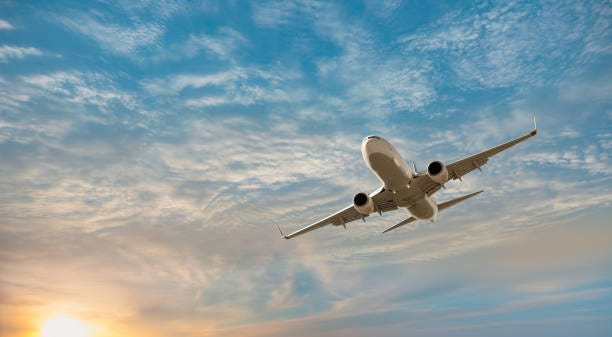.
Is Frontier Airlines Safe Frontier Airlines, like any major carrier, is a subject of scrutiny and evaluation when it comes to passenger safety. This assessment encompasses various aspects: the airline’s safety record, regulatory compliance, fleet reliability, pilot training, maintenance standards, and overall operational practices. This comprehensive examination aims to provide a balanced and informed perspective on the safety of Frontier Airlines.
Safety Record and Incident History
Understanding an airline’s safety record is fundamental to gauging its safety performance. Frontier Airlines, headquartered in Denver, Colorado, has been in operation since 1994. Over its operational history, it has had incidents and accidents, as is the case with most airlines. However, it’s important to note the context and severity of these incidents.
Frontier Airlines has not experienced any fatal crashes in its history. This is a crucial point when evaluating its safety record, as fatal accidents are a significant indicator of an airline’s safety performance. Non-fatal incidents, such as emergency landings due to mechanical issues or operational disruptions, do occur but are not uncommon across the industry and often do not indicate systemic safety issues.
The Federal Aviation Administration (FAA) and other relevant aviation authorities thoroughly investigate incidents involving airlines. Frontier Airlines, like all U.S.-based carriers, is subject to stringent oversight and regulations enforced by the FAA. This regulatory framework is designed to ensure that airlines maintain high safety standards in all aspects of their operations, from maintenance to pilot training and operational procedures.
Regulatory Compliance and Oversight
Frontier Airlines, being a U.S.-based carrier, operates under the regulations set forth by the FAA. The FAA conducts regular audits and inspections of airlines to ensure compliance with safety standards. These inspections cover a wide range of areas, including aircraft maintenance, pilot training programs, operational procedures, and adherence to safety protocols.
The FAA’s oversight extends beyond routine inspections; it also involves continuous monitoring of airlines’ safety performance through data analysis and reporting systems. This proactive approach helps identify potential safety concerns before they escalate into incidents.
In addition to FAA oversight, Frontier Airlines is also a member of the International Air Transport Association (IATA), which sets global safety standards and best practices for the aviation industry. Membership in organizations like IATA underscores an airline’s commitment to maintaining high safety standards and participating in industry-wide safety initiatives.
Fleet and Maintenance Standards
The safety of an airline’s fleet is paramount to its operations. Frontier Airlines operates a fleet primarily composed of Airbus aircraft, including Airbus A320 and A321 models. The airline’s fleet is relatively modern, with a focus on fuel efficiency and passenger comfort. Modern aircraft are equipped with advanced safety features and undergo rigorous maintenance schedules to ensure they meet regulatory standards.
Maintenance practices at Frontier Airlines adhere to FAA regulations and manufacturer recommendations. Maintenance checks are conducted at regular intervals, ranging from routine inspections to more comprehensive overhauls. These checks include everything from avionics systems to engine components and structural integrity, ensuring that each aircraft is airworthy before every flight.
The airline also employs certified maintenance technicians who undergo regular training and certification to stay abreast of evolving technologies and best practices in aircraft maintenance. This dedication to maintenance excellence contributes to the overall safety and reliability of Frontier Airlines’ fleet.
Pilot Training and Safety Culture
Pilot training is another critical aspect of airline safety. Frontier Airlines requires its pilots to undergo rigorous training programs that exceed FAA requirements. These programs include simulator training, emergency procedures, and recurrent training to ensure proficiency in handling various flight scenarios.
Pilots at Frontier Airlines typically have extensive experience in commercial aviation, with many having backgrounds in military or other airlines before joining Frontier. This experience contributes to their ability to handle diverse flying conditions safely and effectively.
Safety culture is ingrained in every aspect of Frontier Airlines’ operations. From frontline employees to senior management, a commitment to safety is emphasized through training programs, safety briefings, and reporting systems that encourage open communication about safety concerns. This proactive approach helps identify and address potential safety issues before they impact operations.
Operational Practices and Customer Safety
Operational practices play a crucial role in ensuring passenger safety. Frontier Airlines adheres to established procedures for flight planning, weather monitoring, crew resource management, and communication protocols. These practices are designed to minimize risks and ensure that flights operate safely and efficiently.
Passenger safety is prioritized throughout the travel experience, from check-in to landing. Safety briefings are conducted before every flight to familiarize passengers with emergency procedures and the location of safety equipment. Cabin crew members are trained to handle various in-flight scenarios, including medical emergencies and turbulence, to ensure passenger well-being.
Conclusion
In conclusion, Frontier Airlines maintains a strong commitment to safety through rigorous regulatory compliance, comprehensive maintenance practices, pilot training programs, and a robust safety culture. While no airline is immune to incidents or operational challenges, Frontier’s safety record, regulatory oversight, and operational practices demonstrate its dedication to passenger safety.





Comments